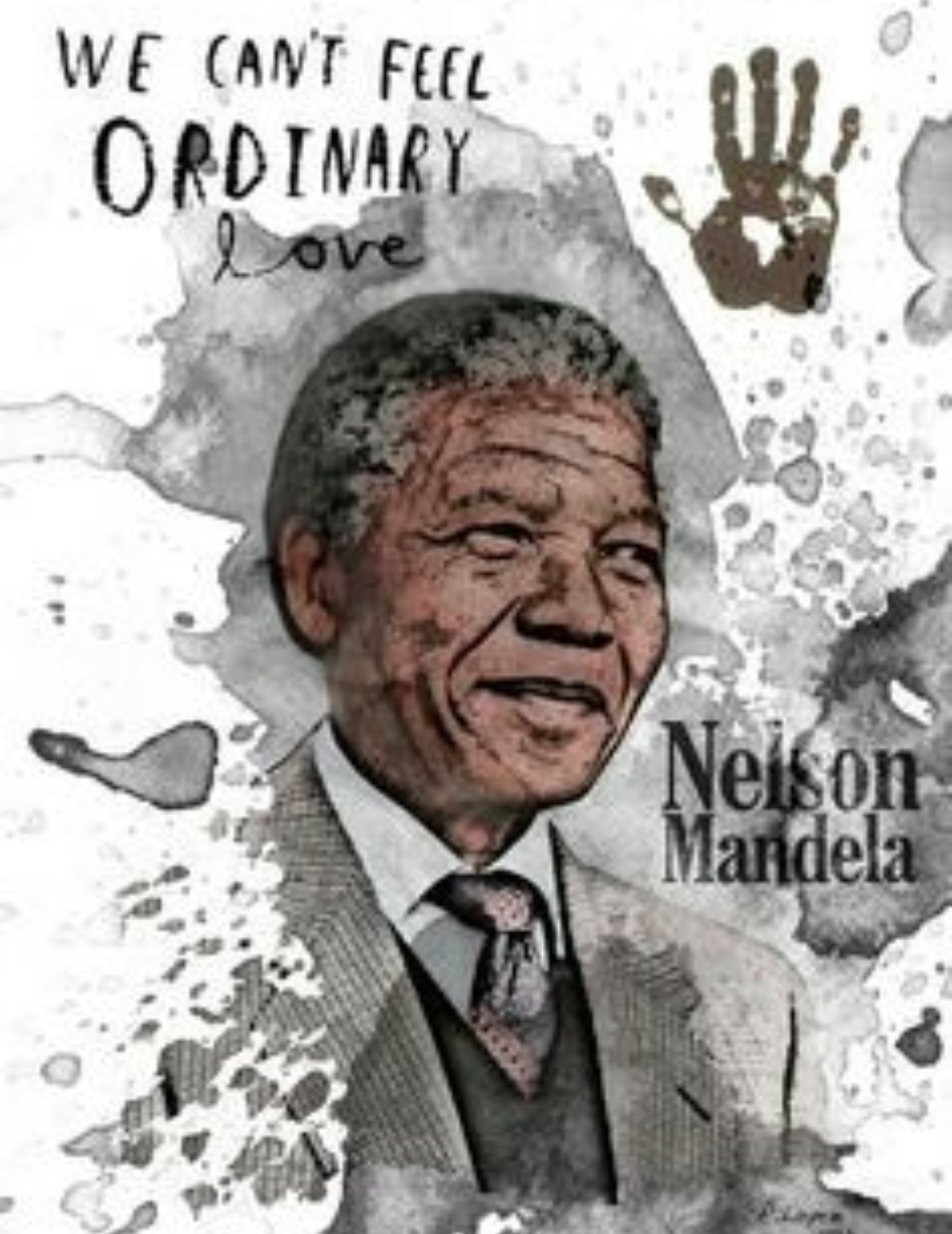Nelson Mandela: A Beacon of Freedom and Justice
Nelson Mandela, one of the most iconic figures of the 20th century, stands as a symbol of the struggle for justice, freedom, and equality. Born on July 18, 1918, in the small village of Mvezo in South Africa, Mandela's journey from a rural upbringing to becoming the first black president of South Africa is a testament to his indomitable spirit and unwavering commitment to human rights
Early Life And Education
Mandela, whose birth name was Rolihlahla, meaning "troublemaker," was part of the Thembu royal family. His father, Gadla Henry Mphakanyiswa, served as a chief. After his father's death, young Mandela was taken under the guardianship of the Thembu regent, Chief Jongintaba Dalindyebo, who ensured he received a quality education. Mandela attended a Methodist school where a teacher gave him the English name "Nelson."He continued his education at Fort Hare University, the only residential university for black people in South Africa at the time. It was here that Mandela first became involved in student activism, leading a student protest that resulted in his expulsion. He later completed his degree through the University of South Africa and pursued law at the University of the Witwatersrand, where he faced rampant racial discrimination.
The Fight Against Apartheid
Mandela's legal career was marked by his dedication to fighting apartheid, the institutionalized racial segregation and discrimination system in South Africa. In 1944, he joined the African National Congress (ANC), co-founding its Youth League. He quickly rose through the ranks, advocating for a more radical approach to ending apartheid.In 1952, Mandela and Oliver Tambo opened the first black law firm in Johannesburg, providing affordable legal counsel to black South Africans. His activism intensified during the Defiance Campaign against unjust apartheid laws, leading to his first arrest.
Imprisonment and Robben Island
The Sharpeville Massacre in 1960, where police killed 69 peaceful protesters, marked a turning point for Mandela. The government banned the ANC, forcing Mandela to go underground and form the ANC's armed wing, Umkhonto we Sizwe ("Spear of the Nation"). In 1962, he was arrested and sentenced to five years for inciting strikes and leaving the country illegally. Two years later, he was sentenced to life imprisonment at the Rivonia Trial for planning to overthrow the government.Mandela spent 27 years in prison, primarily on Robben Island. Despite harsh conditions, he remained a unifying figure, advocating for peaceful resistance and dialogue. His letters and writings from prison inspired millions worldwide.
Freedom and Presidency
International and domestic pressure mounted against the apartheid regime, culminating in Mandela's release on February 11, 1990. His release signaled the beginning of the end for apartheid. Mandela worked closely with President F.W. de Klerk to dismantle apartheid laws and prepare for multiracial elections.In 1994, South Africa held its first democratic elections. Mandela was elected president, serving until 1999. His presidency focused on reconciliation and nation-building, establishing the Truth and Reconciliation Commission to address human rights violations.
Legacy and Impact
Mandela's legacy transcends South Africa. He is celebrated for his role in ending apartheid and fostering a spirit of reconciliation. His autobiography, "Long Walk to Freedom," provides a profound insight into his life and the struggle for justice.
Mandela received numerous awards, including the Nobel Peace Prize in 1993, shared with de Klerk. His birthday, July 18, is observed globally as Mandela Day, encouraging people to volunteer and make a positive impact in their communities.
Nelson Mandela passed away on December 5, 2013, but his legacy endures. His life exemplifies the power of resilience, forgiveness, and the relentless pursuit of justice. Mandela remains a beacon of hope, reminding us that one person can indeed change the world.

